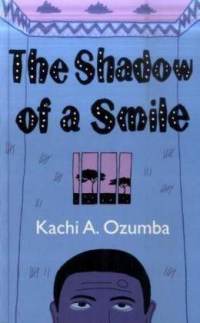
The story: Meet Zuba, a young Biochemistry graduate with dreams of undertaking a PhD (told you Nigerians need 10 characters minimum after their surname). He has a huge “kee-loid” scar on his forhead due to an unfortunate accident eons ago which claimed the lives of his mother and younger brother. He is totally obsessed with this keloid of his, it acts a conduit through which Zuba expresses his varying levels of stress through various means such as rubbing, stroking, fingering, you-get-the-picture. He also has a penchant for novels featuring other such scarred characters.
His father, Professor Maduekwe sets up a secondary school and welcomes into his employment, the devil and his advocate aka Mrs Egbetuyi and her husband. Professor Maduekwe falls ill and it is left to Zuba to take the reins and make sure daddy’s efforts aren’t in vain. A seemingly trivial series of events cause Zuba to order the dismissal of the fiendish Egbetuyis. They’re having none of it and demand a gargantuan payout if he wants them to leave the premises in peace. The principled Zuba refuses and Mr Ebgetuti swears to see to it that Zuba pays for this transgression. After this, things appear to spiral out of control. Zuba is arrested on trumped up charges of armed robbery and manhandling of the Egbetuyis and goes from the police cell to a prison. The situation is dire. The conditions that the prisoners are forced to live in are beyond belief. Actually, they aren’t, this is Nigeria after all… Honestly though, I was horrified. Zuba is exonerated in the end and the Egbetuyis get their just deserts.
Rewa’s take on things: This review will be short because I found this novel moderately enjoyable. That I found it enjoyable at all was due to my partiality to African literature. It isn’t that there is something drastically wrong with Ozumba’s writing style, nothing particularly askew with the story etc. I think that for me, I found the protagonist incredibly lacklustre and spineless. Perhaps it would have been more interesting if the story had been focussed on Zuba’s less-privileged cohort, Ike. Oh well.
I believe the novel offered some insight into the judicial system in Nigeria, the despicable state of our prisons and the consequences of bribery and nepotism.
Towards the end, the story became increasingly farcical and I found the ending a bit of an anti-climax. Even though there was a build-up to Zuba’s eventual release, when it did come, I felt sort of deflated. It just seemed too sudden and easy. By the end of the novel, I had just about had it with Zuba’s keloid-stroking and thoughts-about-nothing-but-keloid. The descriptions and characters felt elementary and shallow; Kachi has a remarkable inability to explore more diverse similes and modes of communication. He relies on repetition, repetition, repetition, repetition, repetition, repetition, repetition. Get the picture? Like, enough already *does American cheerleader voice*.
I believe at the heart of Ozumba’s novel was the take-home message of unfailing hope and triumph amidst unrelenting adversity. However, this bride did not make it past my threshold. If anything, having read about Zuba’s horrific experiences as a result of his insistence on holding on tight to the reigns of his high horse, I would be more inclined to let go of the proverbial reins and dabble in a bit of the system’s venality.
Actually, the only thing Ozumba achieved with this novel, was wasting half an hour of my lover’s life with which he spent traipsing around the streets of London in search of this novel for me (kindle let me down you see). Half an hour that could have been better spent showering me with hugs and kisses *does Kanye shrug*.
While I must admit that this particular review of mine has been slap-dash, this was because I was so uninspired by the shallow characters and dull cadence of story-telling which both substantiate the low rating I have given this book.
